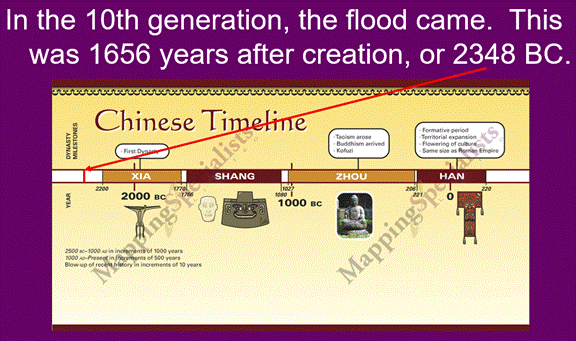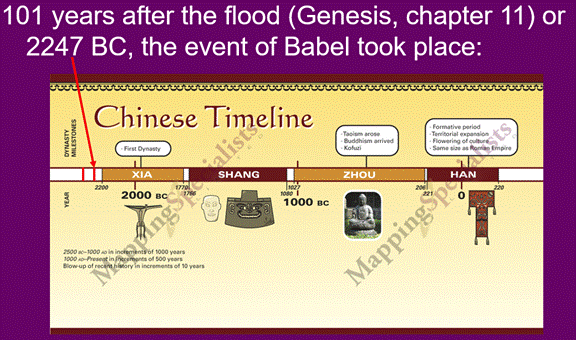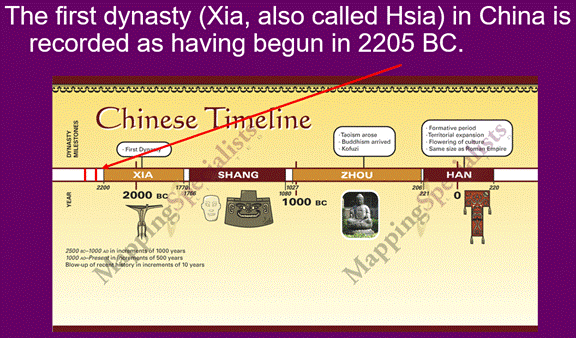Timeline of the earliest Chinese Dynasties
"Genesis and the Mystery Confucius Couldn't Solve"
By Stephen M. Golden
The early Chinese were descendants of Noah as well as contemporaries.
The first 10 generations of man had an average life span of 912 years.
In the 10th generation, the flood came. This was 1656 years after creation, or 2348 BC.

101 years after the flood (Genesis, chapter 11) or 2247 BC, the event of Babel took place:
“To Eber [son of Salah, son of Arphaxad, son of Shem, son of Noah] were born two sons: the name of one was Peleg, for in his days the earth was divided.” (Genesis, 10:25)

The first dynasty (Hsia) in China is recorded as having begun in 2205 BC. “This gives approximately 40 years for a migration of the great Chinese family from the region of the Tower of Babel in Mesopotamia to resettlement in China.”

“Before the first dynasty in 2205 BC, the Chinese record a mysterious ‘Legendary Period of Five Rulers.’ It was during this period that the Chinese record in the Shu Ching [Book of History], compiled by Confucius, that a ruler, Shun by name (c. 2230 BC), ‘sacrificed to ShangTi.’”
[Phonetically, Shang Ti in one Chinese dialect is remarkably similar to Shaddai [as in El Shaddai], one of the Hebrew names for God.]
“There were just five generations between the flood and the Tower of Babel.” (Noah, Shem, Arphaxad, Salah, and Eber). These five “patriarchs” match the “Five Legendary Rulers.”